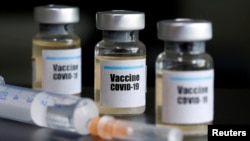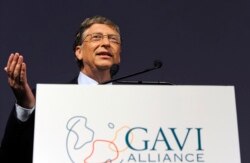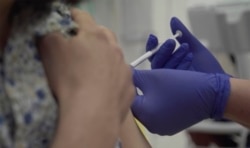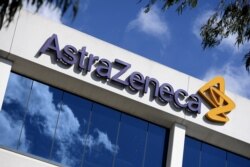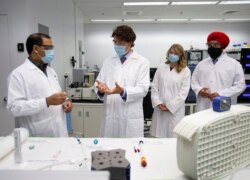Researchers across the world are scrambling to develop a coronavirus vaccine and 170 candidates are being tracked by the World Health Organization.
Scientists are expressing confidence that effective vaccines will be developed, and much sooner than anyone could have hoped for when the pandemic first emerged, but hand-in-hand with the hopefulness is mounting concern that governments aren’t spending enough to avoid a major shortfall in vaccine doses. Nor are they planning enough to anticipate logistical challenges.
Analysts estimate that so far governments have invested enough to provide around half the doses needed for a world population of nearly eight billion. Countries are racing to sign supply agreements with pharmaceutical companies, hedging their bets on which vaccines will successfully navigate clinical trials.
More than 170 countries are participating in negotiations overseen by WHO, and involving The Vaccine Alliance, a group founded by Bill and Melinda Gates, aimed at helping to develop and distribute equitably a vaccine.
The U.S. has declined to participate in the initiative, partly because it is led by WHO, which the Trump administration accuses of mishandling the outbreak in the first place.
Looking out for their own
But the U.S. isn’t alone in being chary about the global initiative. Other countries, increasingly untrusting of each other, are scrambling to ensure their own populations do not miss out on any vaccines, despite their formal interest in talks about equitable distribution. The British government has been busy buying up as many doses it can of potential vaccines as they are being developed.
Last month, it announced it had secured at least 90 million doses of potential vaccine from overseas companies as it wagers on which one may prove successful, if a British one fails. Alok Sharma, the country’s business secretary, said the government had to do “everything we can to ensure the British public get access to a safe and effective coronavirus vaccine as soon as possible.” Like his counterparts in other countries, Sharma is afraid Britain will lose out unless positioned at the front of the line.
Britain in all has so far signed half-a-dozen deals, for a combined 340 million potential vaccine doses. “There will be a worldwide frenzy for vaccines, much as at the start of the pandemic there was an aggressive rush for PPE gear and testing reagents,” a senior British official told VOA. “Our voters won’t forgive us, if we fail to ensure vaccine supplies they need,” he added.
Britain is not the only one angling for vaccine supplies, and the fear of losing out is understandable, say analysts and vaccine experts, especially when there will inevitably be a shortfall because of lack of manufacturing capacity.
Supply shortage
Peter Piot, head of the London School of Hygiene and Tropical Medicine, warned recently there will not be sufficient supplies of glass vials to deliver the necessary global doses and there is not, he said, the manufacturing capacity to produce billions of doses at the moment.
“When you hear some politicians or public health figures say, okay, we need to do all this and next year we'll have a vaccine, and we'll go back to normal. I think, forget it,” he said.
Piot, who is advising the European Commission, has been warning against “vaccine nationalism.” But as negotiations continue to find ways for equitable vaccine access, few governments, especially those who have the financial wherewithal to earmark stocks, are willing to gamble on fair distribution in a world on edge, and they are already preempting the WHO-directed effort by buying up stocks of vaccine.
Earlier this month, Australian opposition politicians warned that Australia is far behind some other nations in taking steps to ensure an adequate supply of doses and would have to wait longer than many other countries for access to a vaccine.
Opposition health spokesman Chris Bowen claimed Australia is “way behind the queue” for a vaccine, noting Japan and several other countries have already signed supply agreements for potential vaccines. “We haven't signed one,” he said. “You've got to be in the discussions, you've got to be signing the deals, you've got to be funding the research,” he added.
The Canadian government announced Monday it had signed agreements with two American drug companies, Novavax and Johnson & Johnson, for up to 114 million doses of potential vaccines under development. India and Japan, among other countries, have also struck deals with Novavax.
Japan has reached an agreement also with AstraZeneca to receive a supply of 120 million doses of a coronavirus vaccine being developed with Britain’s University of Oxford, reported Kyodo News. Japan has agreed as well to buy for 120 million doses of a coronavirus vaccine for 60 million people by the end of June next year from Pfizer and its partner BioNTech, if they succeed in developing one.




